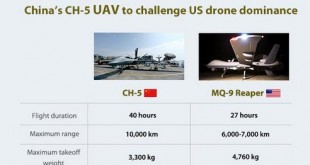State actors use a variety of methods to acquire knowledge and technology that they can use for military purposes or for objectives that are not consistent with our fundamental values. Examples include centrally controlled talent programmes, applying pressure to compatriots (or former compatriots) who have emigrated, digital espionage and the recruitment of individuals in strategic positions.
Inter-institutional partnerships are also used as tools. In such cases, the academic partner acts as an extension of the government. This assigns a double agenda to what is ostensibly an academic partnership.
Countries and states may also undertake activities aimed at influence and interference. For example, they may attempt to influence opinions (about the country) or to impede research on objectionable topics. These countries attempt to maintain control over their compatriots. The knowledge that they are being watched from their countries of origin causes anxiety for the researchers and students involved. Such anxiety can lead to self-censorship and the impairment of core academic values.
NATO considers such threats as a form of Hybrid Warfare. In the context of research on and the development of high-end technology, knowledge security is vital to NATO’s ability to deter and defend against adversaries and protect the prosperity of its members. As such, hybrid threats are a pressing, cross-domain challenge that inhabits a ‘grey zone’ between war and peace. Examples of hybrid threats include disinformation, political meddling, cyber warfare and the theft of technologies.
In the economic domain, hybrid threats pose challenges in relation to energy security, critical infrastructures, foreign direct investments and research on high-end technologies. Such challenges may not have immediate military implications, but are still of vital importance to the resilience of the Alliance and its members.
Countering hybrid threats that target critical national security technologies requires a whole-of-society approach that comprises the public sector, private companies, civil society and individuals aligning their principles and standards to engage meaningfully on an issue. The development of such an approach is hindered by diverging threat perceptions, interests and levels of awareness of the stakeholders (civilian and military; private and public) involved.
Knowledge security
The protection of national security is one of the core duties of the government. Knowledge security entails mitigating the risks of espionage, unwanted knowledge transfers, intellectual property theft, data leakage and the misuse of dual-use technology (technology that is primarily “focused on commercial markets but may also have defence and security applications”).
Knowledge security involves the protection of intellectual property held by universities, such as scientific knowledge, research results and innovations. Examples of these threats include digital spying and information theft. In an environment that is designed for global knowledge exchange, open science, open data, several new questions arise, such as “how to protect and safeguard knowledge in an environment that is designed to share.”
Knowledge security is first and foremost about preventing the undesirable transfer of sensitive knowledge and technology. Transfer is undesirable if it compromises our country’s national security.
Knowledge security also entails the covert influencing of education and research by other states. Such interference places academic freedom and social safety in jeopardy. Finally, knowledge security involves ethical issues that can be at play in collaboration with countries that do not respect fundamental rights.
The accurate identification of sensitive domains of knowledge within your institution is important. Examples include dual-use technologies and knowledge that can be used for unethical purposes. It is also important to chart your ‘crown jewels’: the domains within which your institution is an international leader and that therefore pose risks associated with knowledge transfer. A brief risk analysis should be conducted for each sensitive domain of knowledge.
Risk Analysis
The accurate identification of sensitive domains of knowledge within your institution is important. Examples include dual-use technologies and knowledge that can be used for unethical purposes. It is also important to chart your ‘crown jewels’: the domains within which your institution is an international leader and that therefore pose risks associated with knowledge transfer. A brief risk analysis should be conducted for each sensitive domain of knowledge.
Public threat information, including the State Actors Threat Assessment, the General Intelligence and Security Service (AIVD), and the Military Intelligence and Security Service, can be used to estimate a country’s risk profile. International rankings can also be consulted. For example, a poor score in rankings for academic freedom and respect for the rule of law should raise red flags. A poor score does not necessarily rule out the possibility of collaborating with institutions in the country in question, but it is important to take proper precautionary measures.
Thereafter, as part of due diligence, it is important to examine the background of the foreign partner or client. This involves paying close attention to signals, like a lack of information on the internet or the fact that the institution is not known to anyone.
References and Resources also include:
https://english.loketkennisveiligheid.nl/knowledge-security
https://www.nato.int/docu/review/articles/2022/09/30/knowledge-security-insights-for-nato/index.html
 International Defense Security & Technology Your trusted Source for News, Research and Analysis
International Defense Security & Technology Your trusted Source for News, Research and Analysis

